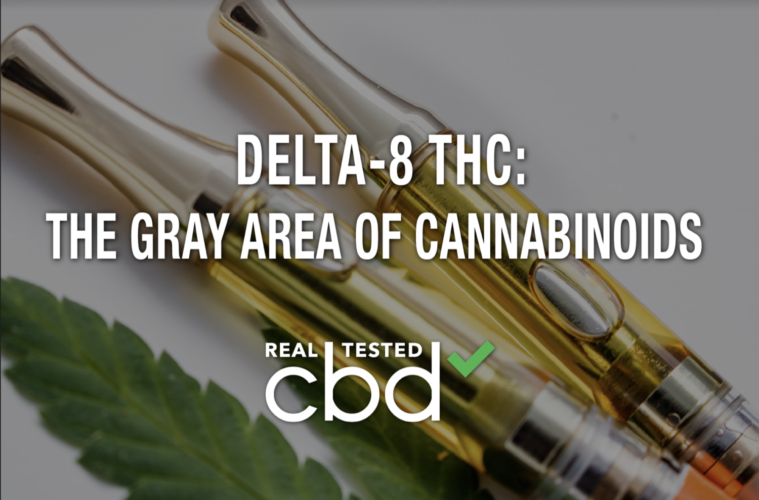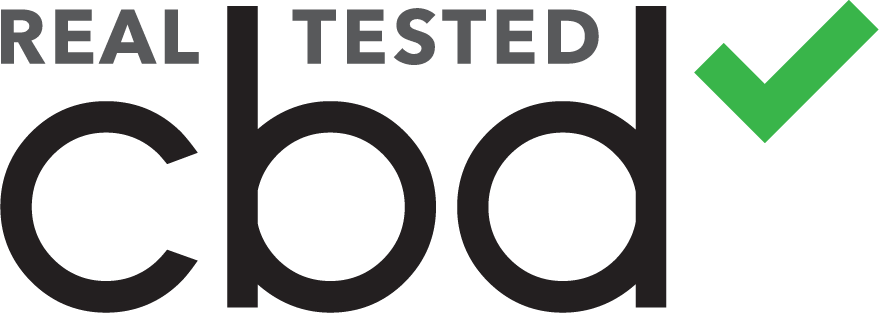This article was originally published on Real Tested CBD. To view the original article, click here.
You’ve likely heard of delta-8 THC by now (if not, read on!), seeing it grace the shelves of just about any retail market you can think of. Whether it’s a gas station, dispensary or health foods store, chances are there is delta-8 available. For now, at least. More and more regulations surrounding delta-8 are emerging, and many retailers and distributors are scrambling to follow suite.
So, what exactly is delta-8 THC and why is it such a gray area when it comes to cannabinoids? Let’s take a closer look at delta-8 THC and how its disrupting the cannabis and hemp industries.
What is Delta-8 THC?
When most people think of THC, they think of delta-9 THC – the cannabinoid that can get you high when smoked, eaten or vaped. However, delta-9 (tetrahydrocannabinol) is just one form of THC that can be naturally produced in cannabis and hemp plants. Delta-8 THC occurs in all cannabis and hemp plants in very small concentrations. Delta-8 THC is a relative of the more traditional delta-9 THC with a similar molecular structure, but with a few significant differences.
From a chemical position, delta-8 THC and delta-9 THC differ due to the location of a double bind in their molecular chain. Delta-8 THC contains the bond on the 8th carbon chain while delta-9 THC has it on the 9th carbon chain. Though this is a small difference in structure, there is a detectable difference in how each effects the body’s endocannabinoid system (ECS).
Delta-8 THC’s bond with the CB1 receptor in the ECS is somewhat like that of delta-9 THC, but due to the difference in molecular structure the interaction is distinctive. The CB1 receptor within the ECS is largely responsible for moderating the psychoactive effects of THC, so the difference in bonding could be the reason for the reported reduction in psychoactive properties. Users of delta-8 THC have reported similar effects that like of traditional THC, but less amplified. In other words, delta-8 THC could create a desirable middle ground between CBD and traditional THC.
How Does Delta-8 THC Make You Feel?
Delta-8 is found in much smaller amounts in cannabis plants, making it minor cannabinoid. Nonetheless, delta-8 THC can interact with the ECS in some similar ways to more abundant cannabinoids like THC and CBD. The ECS is a bodily system largely responsible for functions like mood, pain regulation, sleep cycles and more. Delta-8 THC can bind to CB1 receptors within the ECS, but less is known about the bonding with CB2 receptors. The CB1 receptors in the ECS are thought to regulate the psychoactive effects of THC, so the difference in molecular bond found in delta-8 THC and delta-9 THC is highly relevant for consumers.
Cannabis enthusiasts have reported that delta-8 THC acts similar to delta-9 THC but with less potent effects. Delta-8 is supposed to give you a more clear-headed feel-good effect, less accompanied by the jitters or anxious side effects associated with delta-9 THC. Users of delta-8 THC have reported similar effects that like of traditional THC, but less amplified
The Gray Area of Delta-8 THC
According to the 2018 Farm Bill, hemp cultivated in the United States must have a delta-9 THC threshold of less than 0.3%. This puts the legality of delta-8 in the same classification as CBD products (for now at least), with more state regulations popping up and defining this further.
Delta-8 THC is not specifically listed as an illegal substance, though on a federal level and still in some state’s delta-9 THC is illegal according to law. Now, Michigan is the first state to include delta-8 in the same substance category as delta-9, or more simply put, marijuana. Starting in October 2021, any product containing delta-8 THC is subject to the same regulation as marijuana products. This new legislation is seen as a bridged win to many cannabis advocates, instead of an outright ban on delta-8.
Though the legality of delta-8 THC is still a gray area, there will likely be more and more regulation emerging. With the same regulation surrounding the cannabis industry, more parameters may be better than less. Unlike CBD products, some delta-8 cannabinoid products end up containing larger amounts of delta-9 THC than users would like. This could taint the effects of delta-8 for some consumers who are seeking a diminished high but want to the potentially therapeutic properties of delta-8.
Reliable and lab-tested delta-8 products could become the standard overtime as regulation and more research emerges. For now, delta-8 remains in a gray area. Be sure to check your state’s legislation before buying delta-8 to make sure you are on the right side of the law. For now, check out our tested and tried delta-8 THC products here.
Advertising disclosure: We may receive compensation for some of the links in our stories. Thank you for supporting Irvine Weekly and our advertisers.


